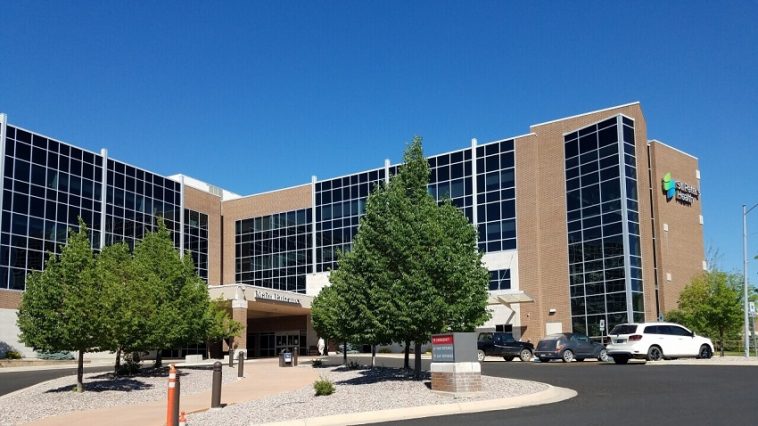Missoula, MT— Mark Nay’s first client had lost the van she was living in and was struggling with substance use and multiple medical conditions, which led to frequent emergency room visits. For more than a year, Nay worked with her, helping her apply for Medicaid and food assistance, obtain necessary identification documents, and navigate the complicated housing system. As a result of this steady engagement, the client now has stable housing, health insurance, and the resources needed to improve her life and overall health.
Nay is one of two community health workers (CHWs) at St. Peter’s Health in Helena, a program launched in 2022 to support individuals who are either experiencing homelessness or at risk, and who have had five or more ER visits within a year. The goal of the program is to link these individuals with essential services such as healthcare, housing, and food, ultimately improving their health outcomes by addressing their basic needs.
While CHWs like Nay and his colleague Colette Murley have become vital players in helping vulnerable populations, they do not provide direct medical care. Instead, they act as connectors, navigating the often complex healthcare system, advocating for clients, and ensuring access to necessary services. Their work, already recognized in some states, is now the focus of legislation in Montana.
State Rep. Ed Buttrey, a Republican from Great Falls, has sponsored a bill (HB 850) that seeks to officially define the role of CHWs in the state, establish licensure requirements, and allow Medicaid to cover their services. Buttrey, who sees CHWs as essential in helping individuals access and navigate healthcare, argues that the bill would provide much-needed support for Montana’s healthcare system, particularly in rural areas where healthcare access is already limited.
“Healthcare is a difficult system to navigate, especially for people who are dealing with multiple challenges,” Buttrey said. “That’s where CHWs can make the biggest impact.”
Montana’s healthcare workforce has long struggled with shortages, particularly in rural areas. According to the U.S. Health Resources and Services Administration, over one-quarter of the state’s population lives in areas with a shortage of primary care health professionals. In response, the Montana legislature has introduced a series of bills aimed at addressing this workforce gap. Among them are bills that seek to extend licensure compacts for healthcare professionals and reduce noncompete clauses for physicians, which aim to increase the state’s ability to attract healthcare providers.
Buttrey’s HB 850 is among several pieces of legislation this session focused on healthcare workforce expansion. The bill recognizes that while physicians and nurse practitioners are essential, CHWs fulfill a unique and critical role in the healthcare ecosystem by addressing the social determinants of health—issues such as housing, transportation, and food insecurity—that heavily impact a person’s well-being.
Cindy Stergar, CEO of the Montana Primary Care Association, which supports the bill, emphasized the importance of CHWs in improving health outcomes. “Research shows that people with complex health needs become healthier faster when their basic nonmedical needs are met,” she explained. “Community health workers can assist with that, which ultimately leads to better patient outcomes.”
Training for CHWs is already underway in Montana, with programs at Montana State University and the University of Montana helping to prepare individuals for these roles. Since 2018, nearly 500 people have completed training to become CHWs, equipping them to connect clients with the appropriate community resources and help identify barriers to good health, such as lack of insurance or access to healthcare services.
Mackenzie Petersen, project director of the University of Montana’s CHW training program, explained that the goal is for CHWs to work outside the confines of healthcare facilities, meeting clients where they are and addressing their needs directly. “We are helping people get to the root causes of their health conditions, which often extend beyond just medical care,” Petersen said.
In one example, Murley recalled working with a client who frequently visited the ER due to suicidal thoughts. After learning that the client was being bullied in his apartment building, Murley helped him relocate. The result was a significant decrease in emergency room visits, demonstrating the impact of addressing social factors in health.
While supporters of the bill see it as a step toward improving healthcare in Montana, not everyone is convinced. Some legislators, like State Sen. Carl Glimm, worry about the state’s financial burden if more services are added to Medicaid’s coverage. “The more services we add, the more responsibility the state assumes if the federal government reduces its contributions,” Glimm said.
Despite these concerns, advocates for HB 850 argue that the benefits of expanding the role of CHWs far outweigh the potential risks. As Murley noted, “It’s really about helping the people we work with create a path to their health.”
If passed, HB 850 would officially recognize CHWs as “frontline public health workers,” allow for licensure after completing training and supervision requirements, and open the door for Medicaid reimbursement for their services, providing a much-needed resource for Montana’s healthcare system.
By expanding the definition and scope of CHWs, Montana aims to not only improve health outcomes for its most vulnerable populations but also to build a more robust, inclusive, and accessible healthcare infrastructure for the state’s rural communities.



